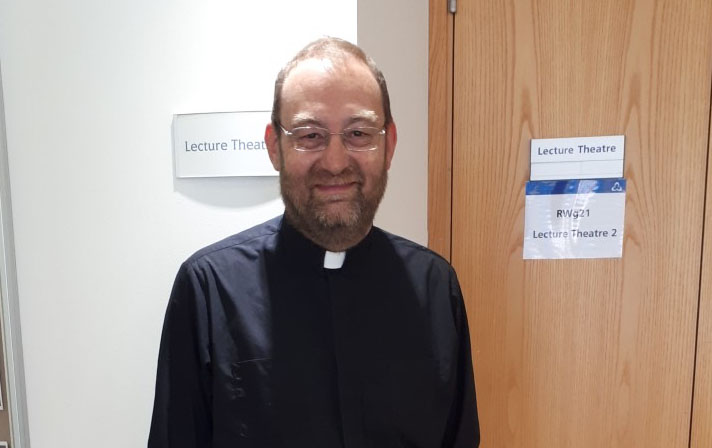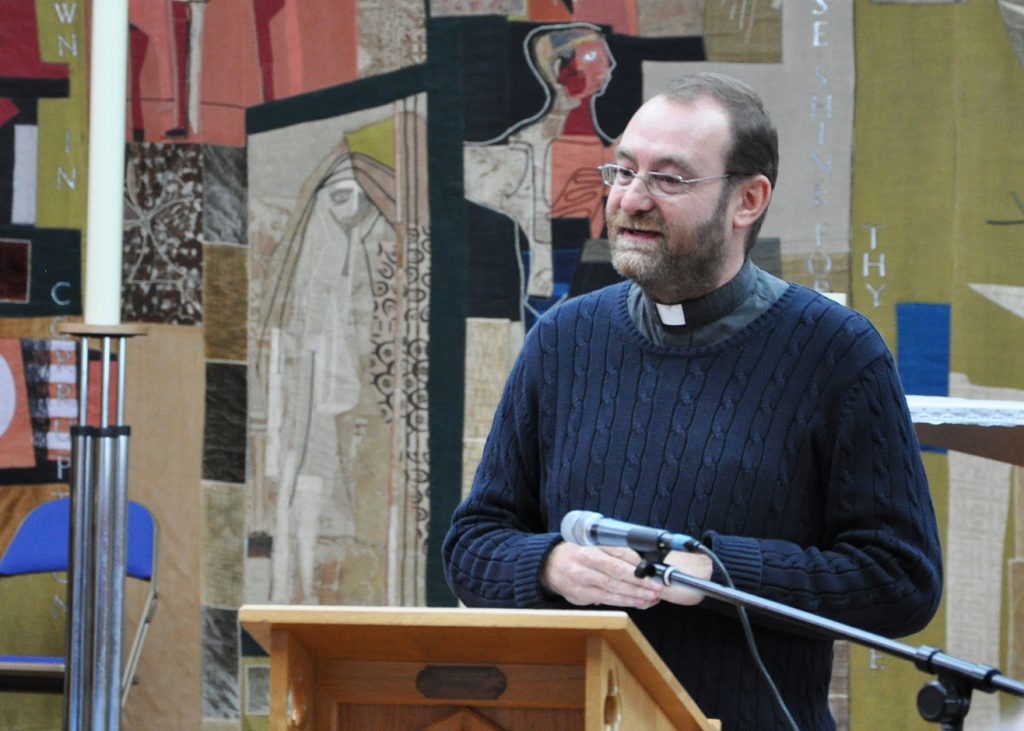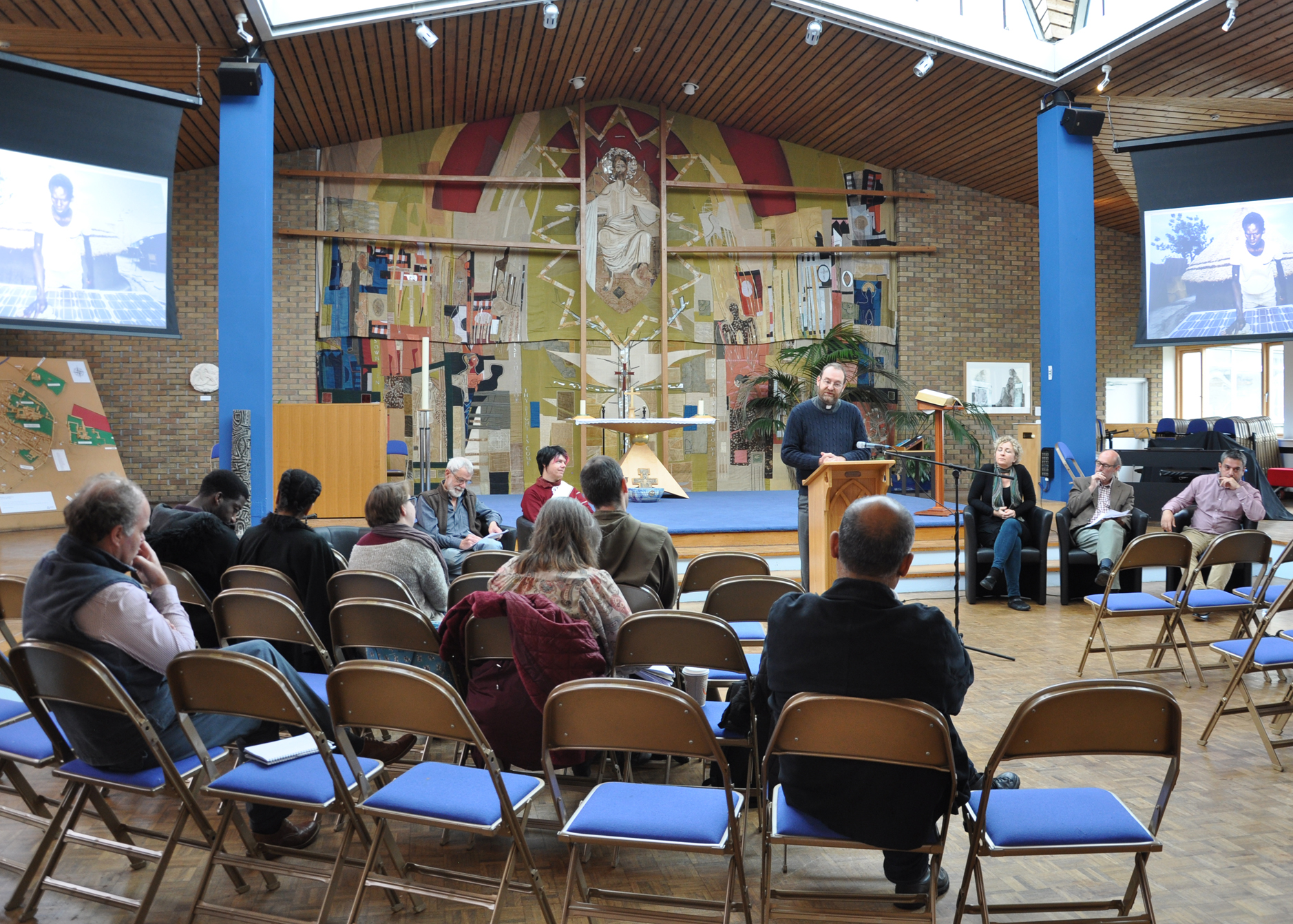It’s nearly Christmas and our gift to you is another Heritage & History instalment! This post is a piece that is all about Church of England Foundation and the conversation will be with Dean of Chapel Jeremy Law. In this post, I will be talking to Jeremy about what the Church of England Foundation is and what it means for the university and sustainability. I hope you find this an engaging read and teaches you something new.
A little about Jeremy…
He came to Canterbury to work as the CCCU Dean of Chapel back in September 2003. Despite that being 17 years ago, he still thinks of himself as fairly new to the University but is beginning to feel as though this notion may need some adjustment!
He knows far more about this subject than I do, so I will hand over to him to tell you about it…

What is the Church of England Foundation?
At its simplest our Church Foundation is a statement of fact. We were founded by the Church of England in 1962 to be a Teacher Education College at a time when there was a significant shortage of teachers due to the post war population explosion (the generation now known as the baby boomers). It also describes our present relationship to the Church of England. This relationship is mediated through the Governing Body, the Vice-Chancellor and the Chaplaincy team. It is also reflected in our Memorandum and Articles of Association that shapes the way the University operates.
What does our involvement with the Foundation mean for the university?
It affects several dimensions. It informs a certain sense of place because our Canterbury Campus is built on the grounds of St Augustine’s Abbey (founded in about 602AD). It helps form our values. Thus, we stand for the inherent dignity of the whole person. It shapes what believe to be the purpose of education. Education is more than knowledge and skills, it is also about the formation of persons (character) both for their own good, and the good of society. Our Foundation also gives us permission to challenge the instrumental notion of education that holds sway at present; it means having the freedom to champion critical thinking.
What does being part of the foundation look like during a global pandemic? Does it look different when we are in lockdown compared to when we aren’t?
Our Foundation identity has informed the way we have dealt with the financial challenges of the pandemic. We have refunded students for accommodation they could not use, and shared savings on staff costs equitably amongst those in the best position to bear it. And, I might add, what is done about money often shows what is really believed! Additionally, some of our staff have worked on the front line of the NHS, and the University has supported the provision of food to families in our community who really need it. The pandemic has revealed what we value.

What does sustainability mean to you?
Human life is irreducibly dependent upon the complex ecosystems of the natural world: for the air we breathe; the food we eat; the materials we use. Yet we have lived as if this were not so, as if the natural world was just another thing to be bought and sold without any consequences for ourselves. Living sustainably means living within the limits of earth’s life-sustaining systems, and more: it means doing what we can to repair the damage already caused.
How does being part of the Foundation link to sustainability?
We often hear talk of an ‘environmental crisis’, as if the problem lies with the natural world. This is a distraction. The problem lies with us, with humans. The crisis is actually one of human values. We need to rethink what is truly important, what ‘successful’ living looks like. In other words, sustainability has to do with beliefs and that is why it is connected to our Church Foundation identity. The first environment each of us encounters is our own body. Do we treat our bodies as machines that should perform for us, or as our fundamental source of connection to and communication with the world? Empathy, compassion, respect for the other, openness to beauty, truth and goodness all flow from the latter option.
Is there more you would like to see the Foundation do for sustainability?
I think work towards sustainable living is one of the clearest ways in which we can demonstrate the meaning of our Foundation identity. Thus, sustainability lies at the centre of who we are. ‘How are you contributing to a sustainable future?’ is a question that can sensibly be asked of every aspect of the University from the curriculum, to the way we build, to the way we treat each other. Our Foundation identity needs to help keep sustainability front and centre.
by Fran Allen, SGO Project Officer #learningforthefuture in conversation with Jeremy Law, Dean of Chapel
 Sustainability
Sustainability Felicity Brambling-Wells
Felicity Brambling-Wells 970
970


